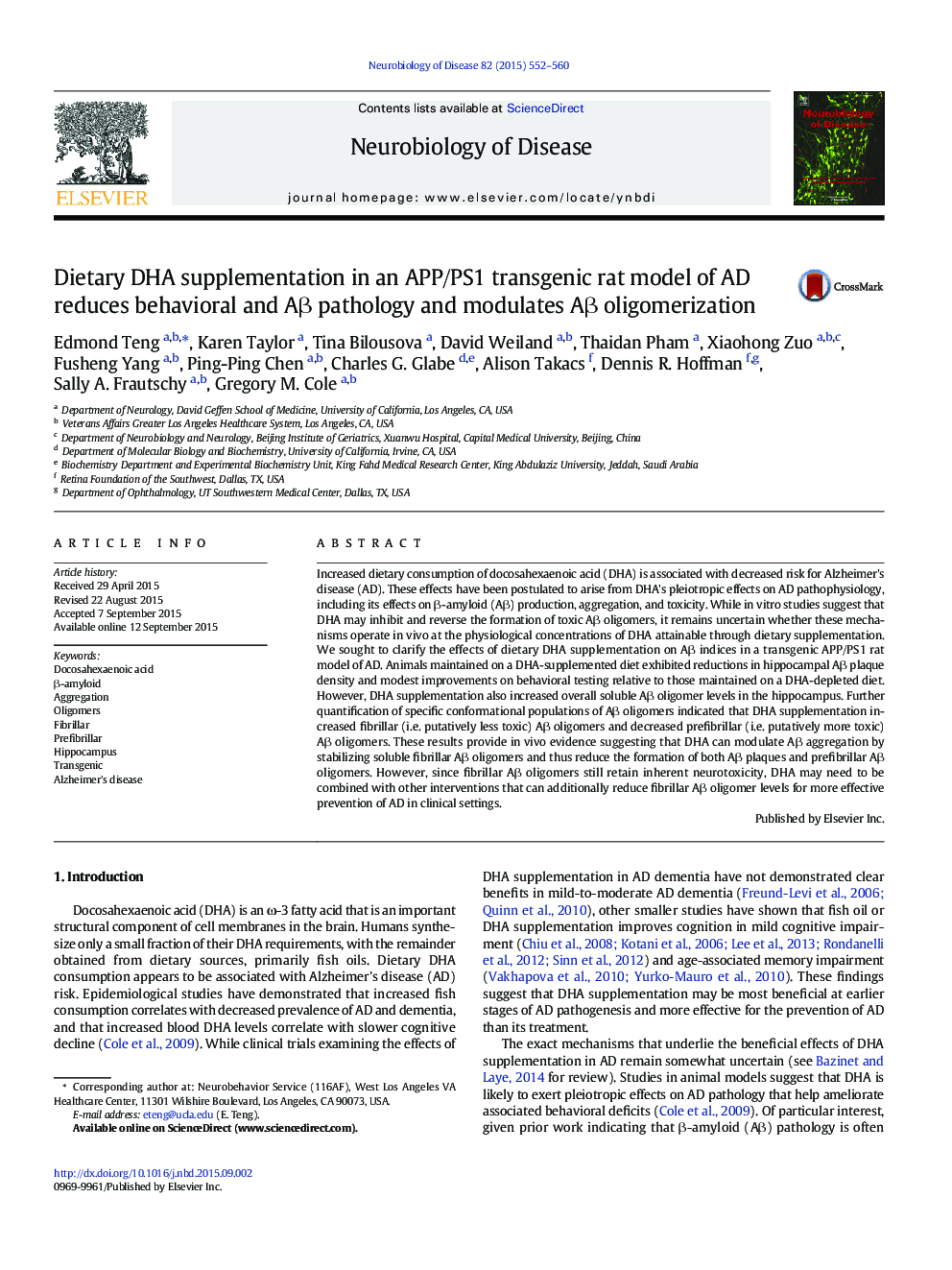| کد مقاله | کد نشریه | سال انتشار | مقاله انگلیسی | نسخه تمام متن |
|---|---|---|---|---|
| 6021657 | 1580641 | 2015 | 9 صفحه PDF | دانلود رایگان |

- We studied dietary DHA supplementation in a transgenic APP/PS1 rat model of AD.
- DHA reduced hippocampal Aβ plaque density and improved behavioral outcomes.
- DHA increased soluble Aβ oligomer levels but did not affect total Aβ levels.
- DHA increased fibrillar Aβ oligomers and decreased prefibrillar oligomers.
- DHA-associated modulation of Aβ aggregation may reduce AD pathology.
Increased dietary consumption of docosahexaenoic acid (DHA) is associated with decreased risk for Alzheimer's disease (AD). These effects have been postulated to arise from DHA's pleiotropic effects on AD pathophysiology, including its effects on β-amyloid (Aβ) production, aggregation, and toxicity. While in vitro studies suggest that DHA may inhibit and reverse the formation of toxic Aβ oligomers, it remains uncertain whether these mechanisms operate in vivo at the physiological concentrations of DHA attainable through dietary supplementation. We sought to clarify the effects of dietary DHA supplementation on Aβ indices in a transgenic APP/PS1 rat model of AD. Animals maintained on a DHA-supplemented diet exhibited reductions in hippocampal Aβ plaque density and modest improvements on behavioral testing relative to those maintained on a DHA-depleted diet. However, DHA supplementation also increased overall soluble Aβ oligomer levels in the hippocampus. Further quantification of specific conformational populations of Aβ oligomers indicated that DHA supplementation increased fibrillar (i.e. putatively less toxic) Aβ oligomers and decreased prefibrillar (i.e. putatively more toxic) Aβ oligomers. These results provide in vivo evidence suggesting that DHA can modulate Aβ aggregation by stabilizing soluble fibrillar Aβ oligomers and thus reduce the formation of both Aβ plaques and prefibrillar Aβ oligomers. However, since fibrillar Aβ oligomers still retain inherent neurotoxicity, DHA may need to be combined with other interventions that can additionally reduce fibrillar Aβ oligomer levels for more effective prevention of AD in clinical settings.
Journal: Neurobiology of Disease - Volume 82, October 2015, Pages 552-560